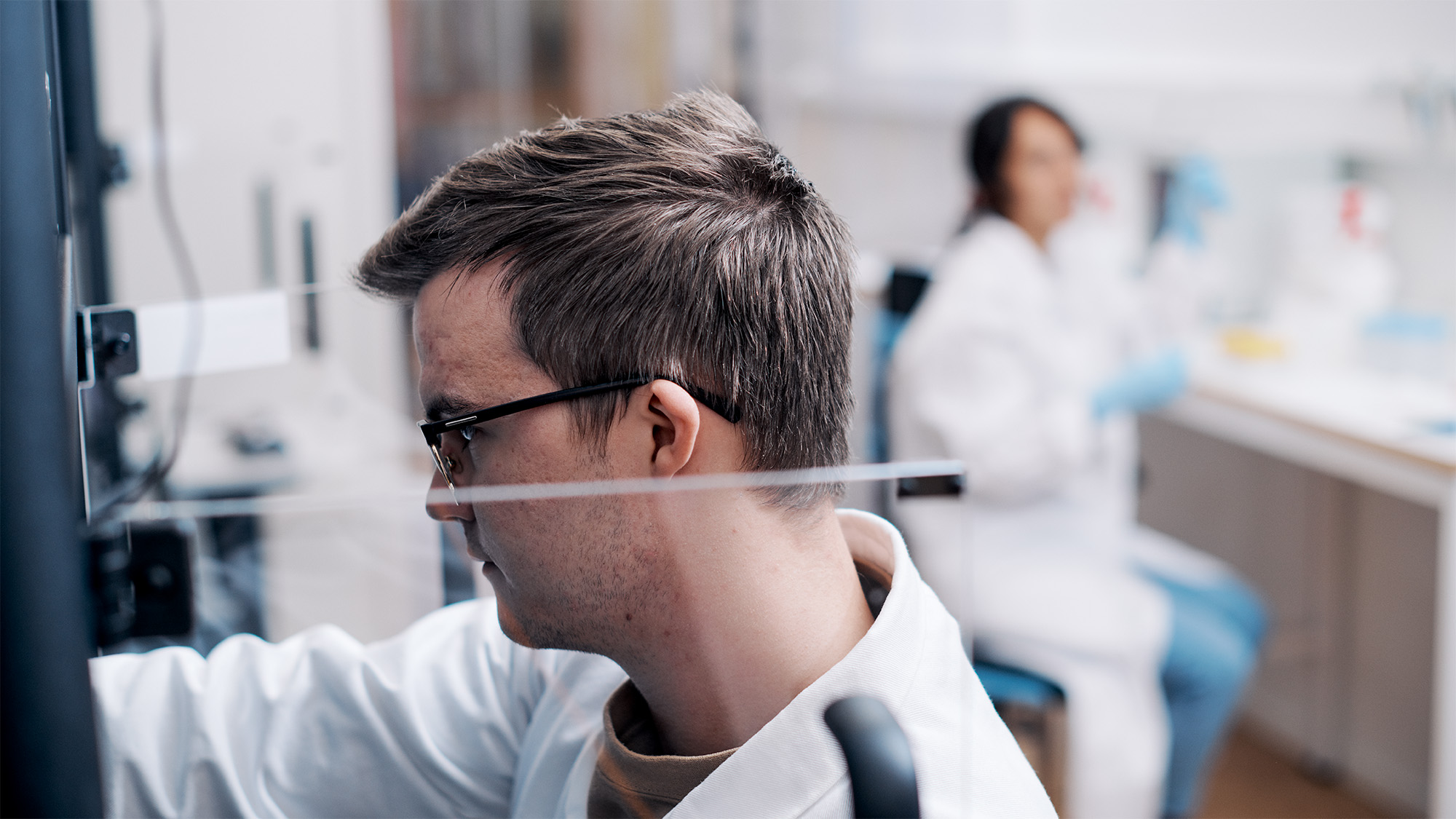
Weightlifting researcher with a keen eye for detail
My journey into research started with studies in biology at University of Gothenburg with a large emphasis on subjects such as ecology, zoology and botany. As my education went on, I realized that my interest leaned more towards the cell-side of biology, and I eventually switched over to study molecular biology. There, I started to specialize in cancer and IPSc biology, which at the time was still a quite new area, filled with untapped potential. When it became time for me to choose a project for my master’s degree, I wanted to take the chance to explore opportunities within the biotech sector. That is how I ended up at Fluicell and got my first experience of creating tissues using bioprinting.
Bioprinting creates new opportunities in diabetes research
Coming from a molecular biology background and experiencing how Fluicell’s bioprinting technology creates solutions to problems that would not be possible using conventional methods was sort of a revelatory moment. In our diabetes program, the project which is my main focus, we can for instance use the ability to pattern cells to directly control the size and shape of the cell islets we use. My role at Fluicell has evolved alongside our diabetes project. When I started, I primarily handled tasks related to cell cultivation. But as the project has progressed, I have more and more grown into a researcher role where I participate in laying out plans for larger studies and set up my own experiments. Being at a smaller company also offers opportunities to take on a larger individual responsibility, something that is perhaps not possible in the same way in a larger organization.
Thoroughness foundation for success
Biology often behaves in ways that are difficult to predict, and it is not uncommon that even small inconsistencies can greatly impact the outcome of an experiment. Because of this, I find it exciting that we can control the whole process from cell cultivation to tissue construction and islet encapsulation — and make it work. I am very thorough as a person and like to do things in a structured way. Being able to see the results and know that I built this, I placed these cells, is therefore incredibly satisfying. The thoroughness can perhaps sometimes seem a bit excessive, but some of the proudest moments have been when we have had issues in the lab, for instance when cells haven’t behaved in the way that we expected them to, and I have been able to go back to my notes and figure out the cause.
Bringing a scientific mindset to training
When I am not at work I really like going to the gym. I started weightlifting when I was around 16 or 17 and have been competing in powerlifting up to 2022. Since then, I have transitioned more towards general weight training that is more varied and less taxing on the body than competitive powerlifting. What I like about weight training is that it is a very complete approach to training. To get good results, you don’t only need to train well, you also need to eat and sleep well. Compared to team sports, it is also much easier to structure and plan to get good results. The only variable is yourself, and the feedback you get is very direct and clearcut. It is possible to know what yields good results, which lets you approach training with a scientific mindset.
